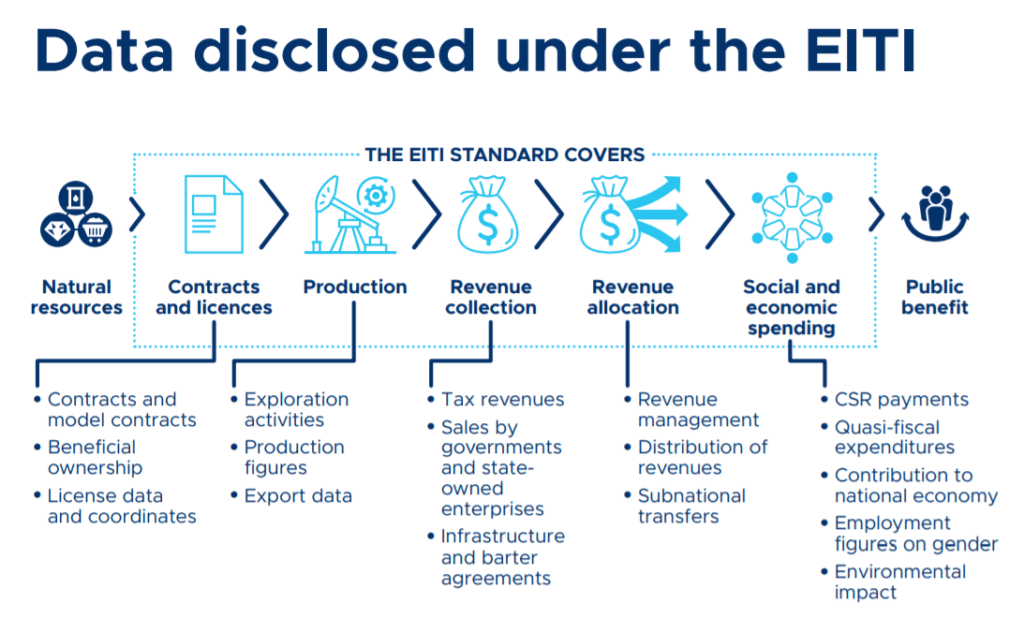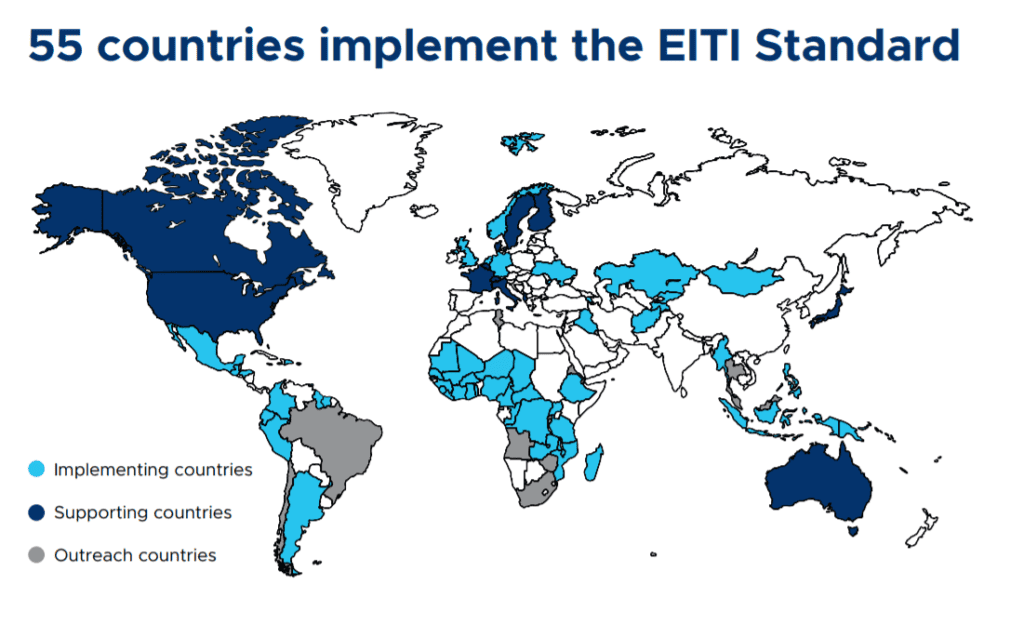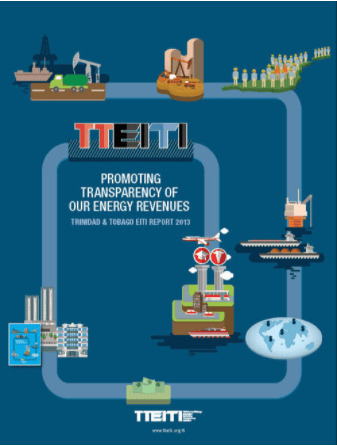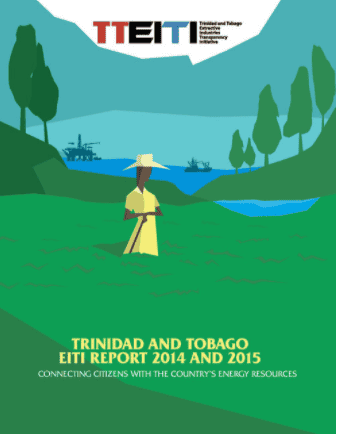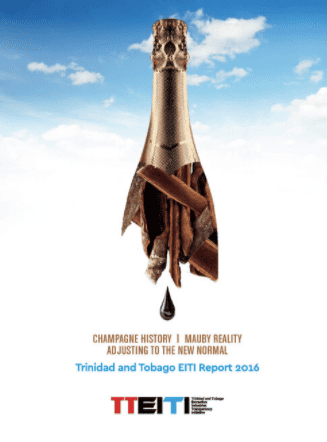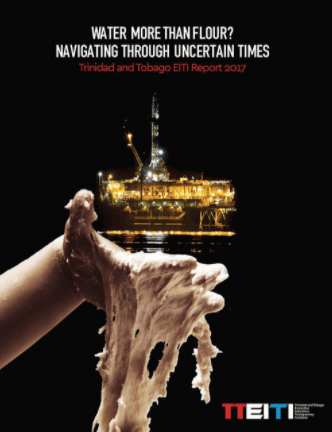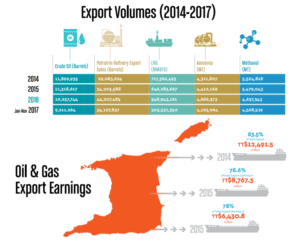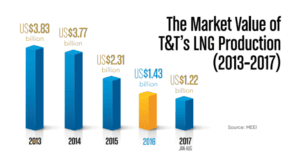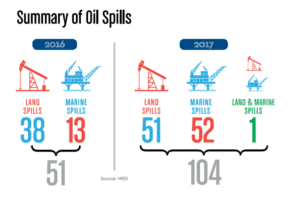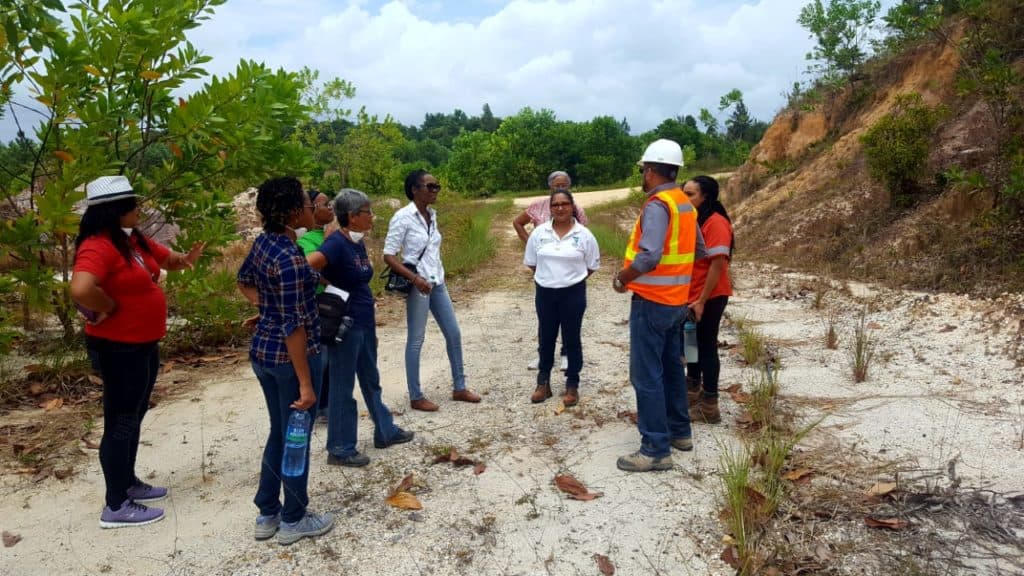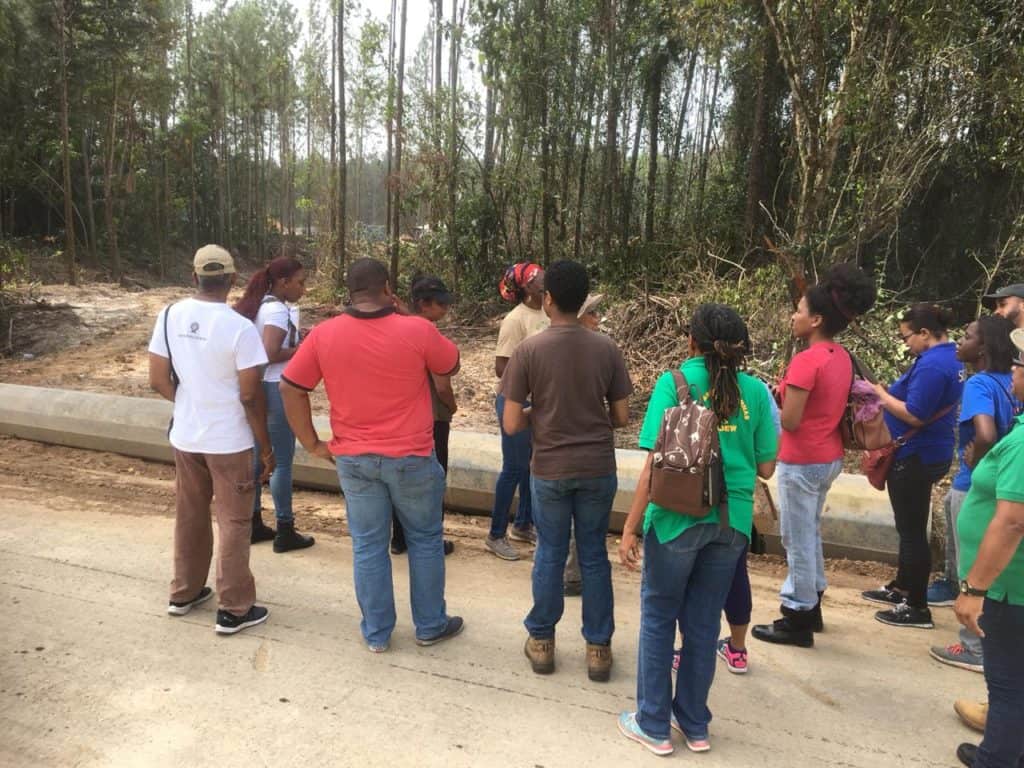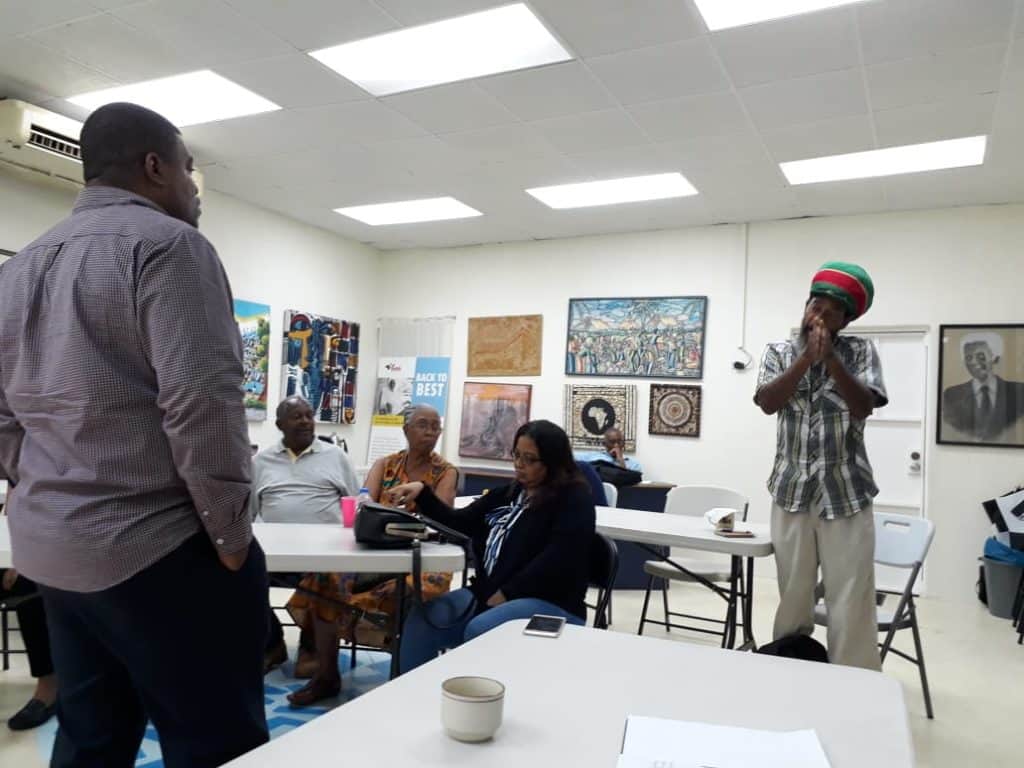It is not often that someone says that they want to make themselves redundant, but that is exactly how Sherwin Long, Head of the Secretariat for the Trinidad and Tobago Extractive Industries Transparency Initiative (TTEITI), jokes when he describes the organisation’s current goal of ‘mainstreaming’ data.
Simply put, mainstreaming means publishing data that would ordinarily be contained in EITI Reports through online reporting systems that are routinely updated at source. This process entails making information on the extractive industries’ contributions and payments to Trinidad and Tobago for the exploitation of the country’s resources, easily accessible through the online platforms of interconnected ministries and state agencies in real-time.

In accepting this new challenge, Long says the TTEITI has envisioned a new role and purpose for itself moving forward, as it celebrates a decade of operation in Trinidad and Tobago.
“We are heading now towards systematic disclosure, where the EITI’s role is not necessarily to compile the data, but to analyse it and facilitate more dialogue on the data,” Long said.
Systematic disclosure for the extractive sector would mean companies and State agencies that deal with oil, gas and mineral resources would have to routinely make public any data required by the Extractive Industries Transparency Initiative (EITI).
A global standard for extractive transparency
The EITI is the global standard for transparency and accountability in governance of the oil, gas and mineral industries. Launched in the early 2000s, the EITI sought to address the long-known resource curse experienced by many extractive-based countries, where the sustainable economic benefits of oil, gas and mining were not being realized and often led to the worsening of conflict and poverty.
The EITI is governed by the EITI Standard that sets out the obligations that reporting countries must adhere to and focuses primarily on the financial payments made by reporting companies to countries. In 2019, however, the scope of payments was expanded to included mandatory reporting on environmental and social payments, with a strong encouragement to include environmental and social impact assessments.
Implementing the EITI in Trinidad and Tobago
TTEITI is the local body overseeing T&T’s adherence to the voluntary EITI standard and Long says this puts the nation among 54 countries in the world that have committed themselves to transparency within the extractive sector.
“From a country’s perspective, branding is important if you’re looking to attract investment, because investors want certainty,” he said. Countries’ commitments to the EITI have been shown to increase sovereign credit ratings, as well as increases in foreign direct investment.
The TTEITI is governed by a 30-member Steering Committee that adopts the EITI’s tripartite composition i.e. bringing together private sector, state and civil society actors on an equal playing field. The TTEITI’s day to day implementation is managed by its Secretariat. The TTEITI has published national reports for the years 2013 – 2017 and is currently in the final stages of the 2018 report.
Addressing the direct benefit to ‘the man/woman on the street,’ Long said that TTEITI also puts most of their reports into easily accessible formats, using ‘regular’ non-technical language and adding contextual information on various other issues of national interest, including environmental impact. Implementation of the EITI standard Long said, sent a strong message to communities and corporations.
“Joining TTEITI as a country says we are a jurisdiction that requires an (oil/gas/mineral) operator to disclose what you pay in taxes so that citizens and fenceline communities can have access to this information,” he said.
Implementation of the EITI standard focuses primarily on reconciling what companies say they pay against what governments say they receive as well as trying to determine if the country receives fair value from its resources.
“We have an independent auditor that reviews information from both the government and extractive companies in the oil, gas and mining sectors to ensure there is no money missing,” Long said, while explaining that the EITI requires that all reporting operators in T&T abide by this standard. As of the 2017 report, 46 companies’ receipts to the Government were reconciled through the TTEITI’s reporting.
The process of systematic disclosure or mainstreaming of TTEITI data falls within the framework of digitalisation of government services being promoted by the administration of Prime Minister Dr Keith Rowley. As digitalisation advances, more and more data will be in the public domain, but Long cautioned that challenges remain in sensitizing the general public to the existence and importance of TTEITI data.
An example he gave was TTEITI’s introduction of the country’s first-ever beneficial ownership register of which he believes many more people should be aware.
“We have the country’s first beneficial ownership register, listing all of the oil and gas company owners so that anyone can, at the click of a mouse, say, ‘Ok, company X is owned by company Y and is therefore a subsidiary of company Y’.”
In other areas however, Long described being pleasantly surprised by the level of interest shown by the public and the media in TTEITI data. He spoke of the interest and focus given to the mining sector, in particular, where their reports have served as resource material for press coverage over the last few years.
High interest by the public in mining and quarry operations
According to the latest TTEITI report (2017), quarry operators owed TT$174 million to the Government in outstanding royalty payments.
Moreover, to obtain this information, the report states that the Ministry of Energy and Energy Industries (MEEI) currently relies on self-reports (trust-based system) from operators and is still in the process of procuring the necessary equipment to improve oversight and enforcement.
“We’ve seen stories linked to environmental issues on the mining sector that quote our reports,” Long said, while indicating that many of these stories ask the question of whether or not the country is getting what it is owed from such operations.
In the 2017 TTEITI report, 5 mining companies started a pilot reporting programme in which they would provide information that can be reconciled against government’s receipts. However, the report also reiterates that “most mining operations in Trinidad and Tobago are conducted without a duly issued licence,” which creates the conditions for low transparency and accountability within the sector.
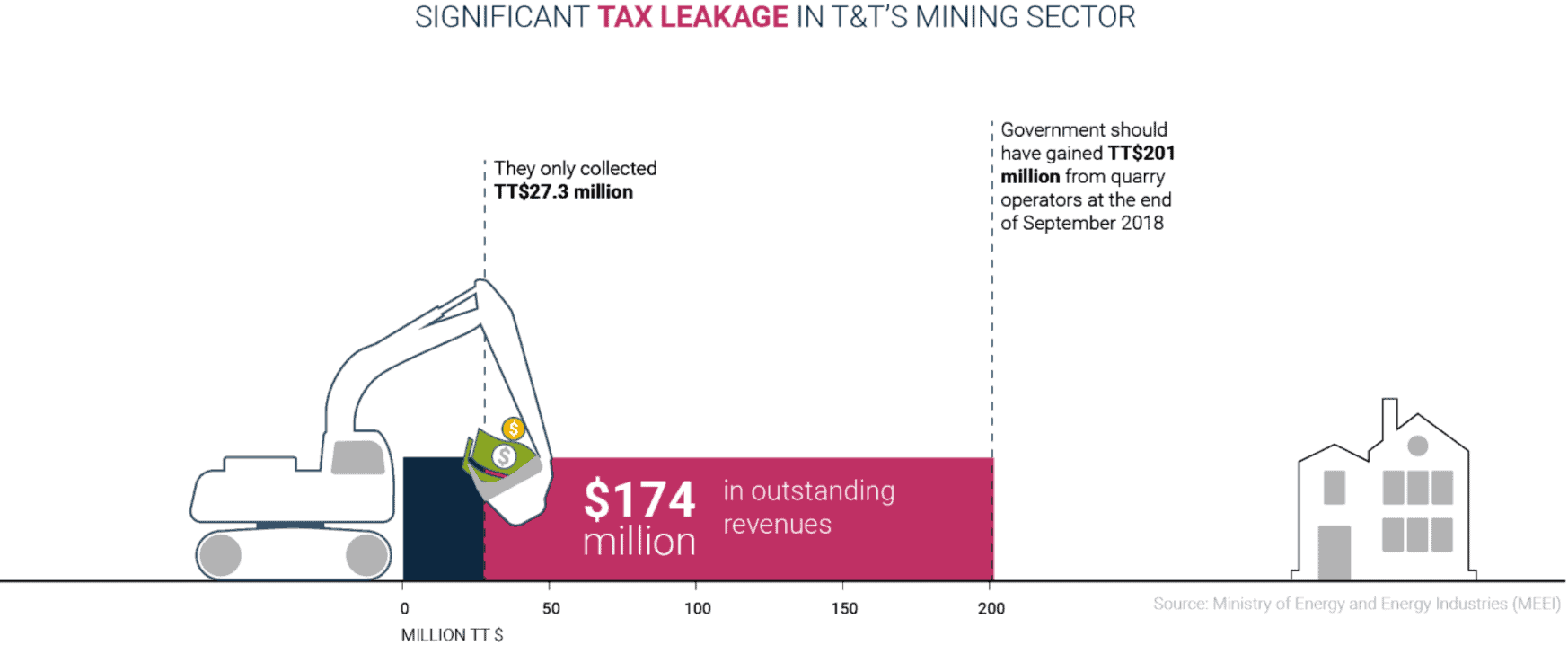
Building a culture of collaboration
When asked about the biggest success of the TTEITI so far, Long chose to focus on the dialogue they’ve been able to facilitate between government, companies and civil society organisations.
“We are a country where people don’t necessarily sit around the table and talk, we scream at each other. I think the EITI has helped in terms of facilitating that type of tripartite dialogue,” he said.
In addition to the TTEITI’s mainstreaming efforts in relation to data, Long also noted that the TTEITI has always had a desire to facilitate more collaborative dialogue. This he said has allowed the often-ignored voices of people living in fenceline communities to be elevated into the national conversation. One of the projects that the TTEITI has supported is being delivered by the Civil Society members of the TTEITI Steering Committee and focuses on enhancing the ability of these fenceline communities to understand and engage with the extractive sector, from the perspective of environmental impact. The project, ‘CSOs for Good Environmental Governance,’ funded by the European Union, has trained over 20 community groups in understanding environmental legislation and data, while simultaneously working with the TTEITI to explore avenues for integrating environmental data into TTEITI’s reporting.
In closing, Long made it clear that civil society and the general public have a role to play in the continued success of the TTEITI as it undergoes its transformation.
“I would advise citizens to follow the work that we do and look at the publications that we put out. We always believe that we must look at what we would have done before and adapt moving forward. We are always happy for feedback.”
To contact the TTEITI Secretariat:
25th Floor, Tower C, International Waterfront Centre
# 1 Wrightson Road, Port of Spain, Trinidad and Tobago
Tel: +868-225-4334 ext 2553
Email: info@tteiti.com
Twitter: www.twitter.com/eiti868
Facebook: www.facebook.com/eiti868




